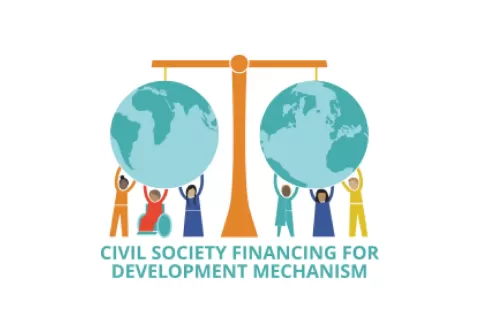
2023 Financing for Development Forum
Session: Fostering debt sustainability by addressing gaps in the sovereign debt architecture Statement by Jason Braganza of African Forum and Network on Debt and Development (AFRODAD) on behalf of Civil Society FfD Mechanism (including the Women’s Working Group on FfD) 18 April, 2023
Thank you, Madam Moderator. Good afternoon, your excellencies, delegates from member states, and comrades from Civil Society. My name is Jason Rosario Braganza, and I am talking today on behalf of the African Forum and Network on Debt and Development, a member of the Civil Society Financing for Development Mechanism, including the women’s working group on FfD.
Let me begin by recognising the submissions by Member States especially from the Republics of Sri Lanka, Indonesia, Seychelles, and Chad, whose experience addressing with their debt crisis epitomises the systemic weaknesses of the global financial and economic architecture that is skewed towards shareholders of capital and creditors at the expense of citizens in the global south. Their statements consistent with those of Egypt and Zimbabwe.
Distinguished delegates and comrades from member states, this chamber is meeting at time when there is an undeniable debt crisis that is disproportionately affecting countries and peoples from the global south. Yet just last week at the IMF-WB Spring Meetings, there was an explicit denial of there being a debt crisis. This begs the question, at what point does a crisis become a crisis? Is it when creditors balance sheets begin to be adversely affected? Or is it when peoples lives are impacted by reduced access to health, education, jobs, and other public services due to prioritisation of debt servicing? Or is it when countries seek debt relief but creditors play ping pong with whom should take the haircut, all the while the quality of life of peoples in the affected countries continue to deteriorate. Earlier this year, the LDC 5 Conference in Doha, Qatar, the number of countries defined as LDCs, 50 years since the introduction of the term, has increased from 25 in 1971 to 46 countries in 2021. There is 2 something very wrong with a global system that increases vulnerabilities and poverty of developing countries.
The presentations by Member States Sri Lanka, Chad, Indonesia, and Seychelles are lived experiences of the inadequacies of the current global economic and financial architecture.
The Debt situation facing countries in the global south are not of their own making. And this is an important point to note. Developing countries has followed almost to the very last full-stop, comma, and semi-colon the advice that has been provided to them by existing IFIs such as the International Monetary Fund and the World Bank in a world where debt financing is the order of the day at the expense of domestic resource mobilisation, as mentioned by the Republic of Zimbabwe. The mantra of “leverage private finance” for the development has created fiscal deficits and reduced fiscal space for production purposes and hence generated a death by debt cycle for many developing countries that are vulnerable to global shocks including rising interest rates and inflation which increases debt servicing and thus diverting resources to public services. This policy and political context constrains developing countries from moving up both value and supply chains thus creating domestic resource mobilisation and reducing reliance on debt finance.
The discussions on the debt relief needs urgent attention that addresses the power asymmetry. We have seen how these asymmetries play out in the G20 Common Framework. Close to two years since its launch the Common Framework has seen only 5 applications and only 1 successfully concluded programme in 2023 in Chad. The current debt relief initiatives are not fit for purpose, and narrowing the debt discussion to issues of transparency and accountability is to ignore systemic issues in addressing the democratic deficit that exist within the current architectural design of economic and financial architecture that profits from irresponsible lending and lack of transparency and accountability of creditors.
These are calls that are consistent with the submissions from Egypt, Zimbabwe, India, Chad, and Morocco where we need to do things differently.
As I conclude, I wish to reiterate to member states that a Fair and timely debt resolution will not come from lender dominated decision-making institutions that exclude the voices of people and governments of the Global South. Despite the undeniable urgency of the current global emergencies, responses to the debt crisis provided so far by developed countries-led 3 economic governance institutions as the G20 and the IFIs have fallen painfully short of what is needed. In turn, the CS FfD Mechanism’s proposals are:
A debt architecture reform agenda for real change and real solutions
- As civil society, we call on governments to establish a debt workout mechanism i.e. a transparent, binding, and multilateral framework for debt crisis resolution, under UN auspices, that addresses unsustainable and illegitimate debt and provides systematic, timely and fair restructuring of sovereign debt, including debt cancellation, in a process convening all creditors.
Such a binding, multilateral framework should urgently address:
- Building global consensus on Principles on Responsible Borrowing and Lending:
Long-pending issue of agreeing on common and binding principles on responsible borrowing and lending and ensuring compliance with it. This should address the gaps in transparency and advance towards the creation of a publicly accessible registry of loan and debt data as well as facilitate the organization of debt audits.
- Assessing systemic risks posed by unregulated or inadequately regulated financial sector instruments and actors: including regulation and supervision of the asset management industry (shadow banking), regulation and supervision of Credit Rating Agencies and a new global consensus on the critical importance of capital account management beyond pre/post crises conditions, both with respect to inflows and outflows. The CS FfD Mechanism’s detailed submission to the UN Independent Expert on poverty and human rights on the ‘role of credit rating agencies
